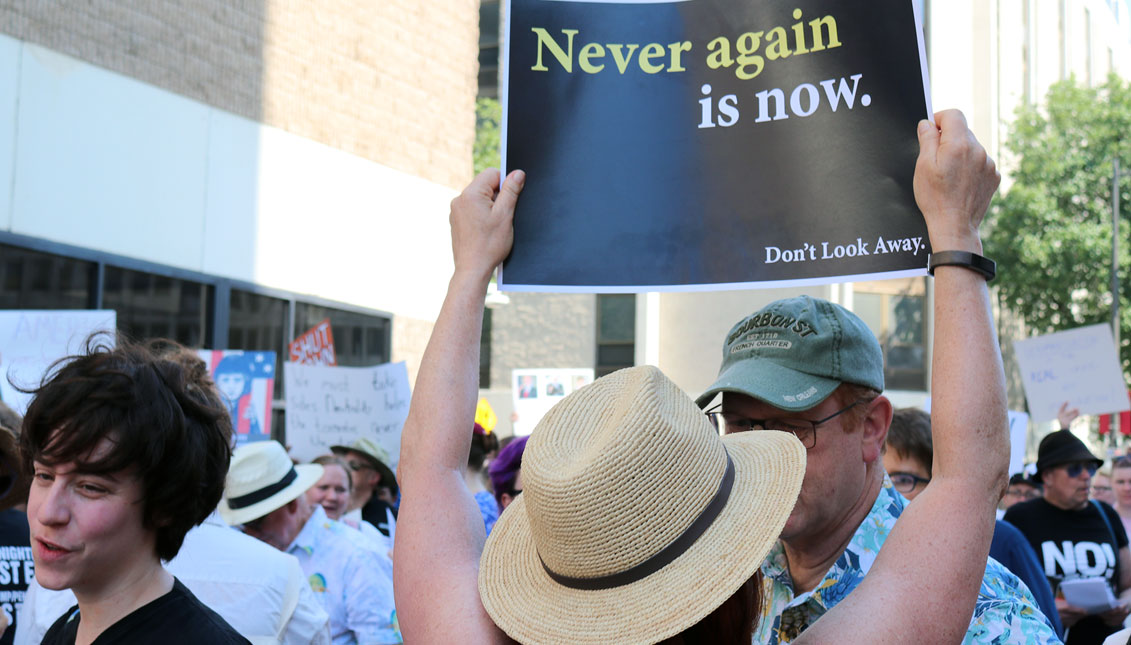
Face to face with the marks of cruelty
MORE IN THIS SECTION
One cold March day in Queens, New York, several years ago, I was filming the work of a window artist for a journalism school class when an older man approached us.
He was small, stooped over, and carried a grocery bag in each hand. He greeted us outside of the bagel shop, looking on as the artist continued to paint rainbows, pots of gold, and shamrocks. As we chatted, he said, “You know, I was in World War II.”
I assumed he meant he had been in the war as a soldier. As someone of the “millennial” generation, I hadn’t met many people who had served in WWII. That knowledge alone had a weight to it.
“Yes,” he continued. “I was at Auschwitz.” He then pulled up the sleeve of his jacket to show numbers on his arm.
RELATED CONTENT
I had seen the history of the Holocaust displayed in museums behind glass, surrounded by detailed information. In textbooks, I had read about the horrors of the concentration camps constructed by the Nazis to kill more than 6 million Jews, and seen it narrated in movies. But that reality had never been something close enough to touch — something tangible. An evil which had tortured some person I might exchange words with on a street corner in a daily, casual interaction.
It sometimes seems like the suffering of the world is always at our door. Every notification, every article bears new horrors, large and small — stories of tragedies intertwined with a myriad of systemic issues and overarching societal problems that have led up to that point.
In the midst of the constant noise, it can be hard to imagine the face, the home, the dreams of the people behind the headline - “Two shot dead” - as gun violence tears apart the lives of so many in our city and our country. We can become inured to the videos of children crowded in cages in a U.S. detention center at the border, and numb to their cries for their parents.
But it is our duty to witness the marks of cruelty that are before our eyes — the marks on human skin, felt in individual lives. It is our responsibility to remember, and to act.







LEAVE A COMMENT:
Join the discussion! Leave a comment.